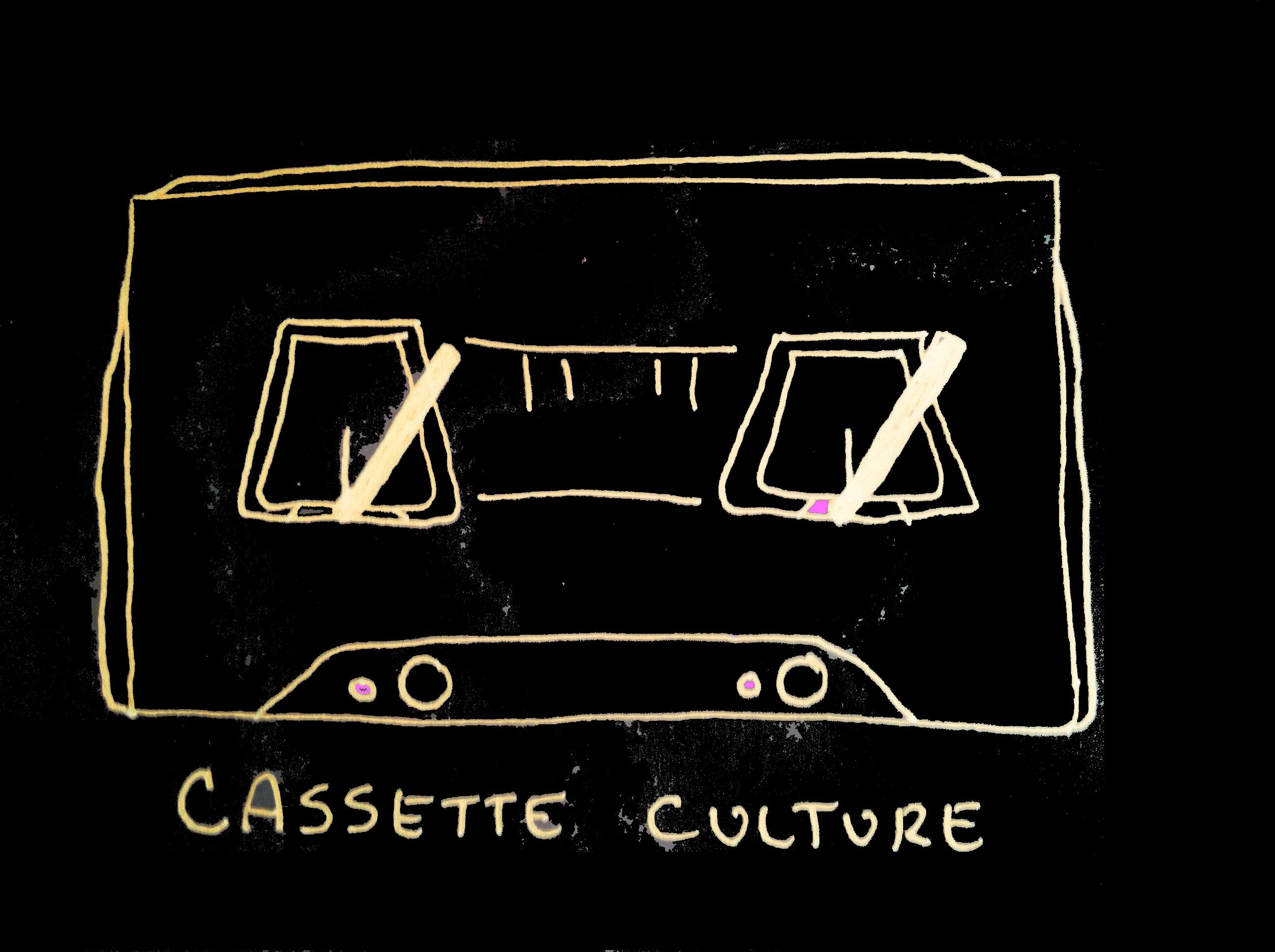Cassette Culture is a monthly column dedicated to exploring the various artists that inhabit the expansive cassette market. Drawing from bands and labels around the world, this column will attempt to highlight some of the best artists and albums from this global community.
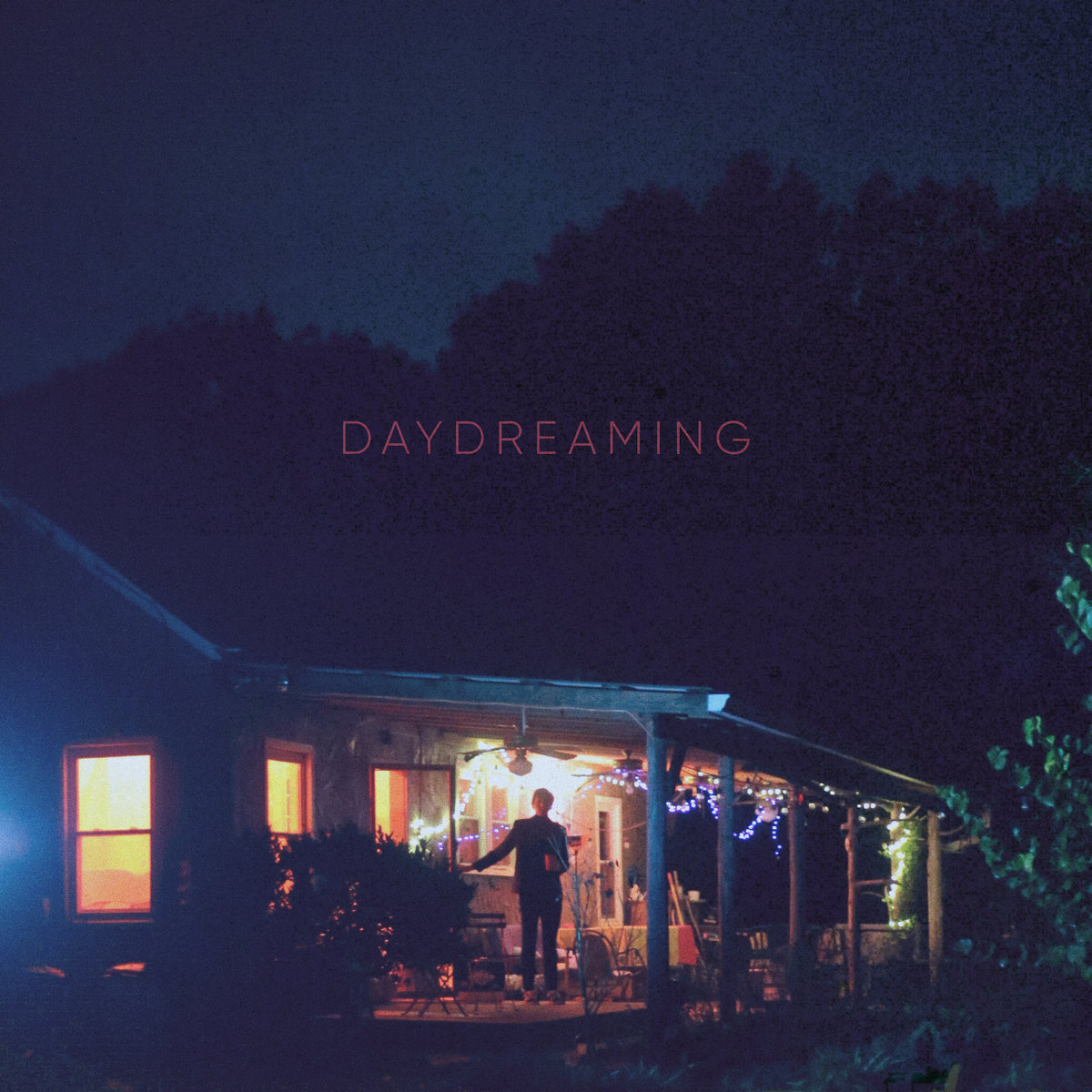 El Rocko
El Rocko
Daydreaming
(Yellow Racket Records)
The music of El Rocko sits somewhere between the folk eloquence of early Sufjan Stevens (and maybe some of Stevens’ later, wilder offerings) and the denser, more complicated rural ruminations of Fleet Foxes. Banjos are plucked, guitars are strummed, and an inviting noise is made manifest – it’s all very familiar but constructed in such a way as to leave behind the weight of its influences. As the architect of El Rocko, Chase Waller even dips into dream pop on several occasions, creating a blurry-eyed vision of folk that isn’t afraid to gets slightly raucous when necessary. His latest release, the 6-track EP Daydreaming, was actually released back in May but is only now seeing a proper label release via Yellow Racket Records. And if you happened to miss it back then, now is the perfect time to catch up on this gauzy dream-folk gem.
Mixing the confessional lyrical grace of Elliott Smith with the blooming folk and pop entanglements of Iron and Wine, Daydreaming is inundated with gorgeous melodies and elegant genre dissolution. It’s one of those records which feels like a secret, one that only you can understand and that you hold close to your heart for fear of losing it. But Waller’s vision is meant to be shared – there’s no fear of it losing any force should you happen to share it with others. These songs tumble, shuffle, and echo in your head until the last opaque, slightly fuzzy notes of “Crying” close out the collection. And just when you think you’ve worked out all the nuance of his words and the images they evoke, you find that your perspective has subtly shifted, and you find larger worlds that he’s hidden within the recesses of the music. And it’s a privilege to offer more time in search of their wonders.
 Torschlusspanik
Torschlusspanik
Intersexual Healing
(No Rent Records)
Luna Mitchell is a sound artist working under the moniker of Torschlusspanik, and she has a talent for evoking memory and emotion from seemingly random sounds and a host of aberrant rhythms. Her past work is deeply personal, almost voyeuristic in its presentation, splintered in its use of musical elements and found sound adornment. The longer you’re exposed to the complicated construction of her art, the deeper your understanding of her perspective on the world. This is especially true of her latest release, Intersexual Healing, a fairly gargantuan collection of 15 tracks that tears out a sizable chunk of the surrounding geography as it tromps and rambles through vast stretches of dissonant and clattering soundscapes. It’s an album best experienced in full, devastating and immersive in its detail, a true act of creative expression and insight.
The narrative is left vague, open-ended, and can be discarded entirely depending on your level of comfort with disquieting evocations and noisy revelation. Internal struggles are acknowledged and doused in vats of abrasive sound. Feelings of acceptance are reluctantly embraced but grow in power as each track bleeds into the next. These songs act more as snapshots of specific moments and emotions rather than concise musical experiences. It’s almost Lynchian in its desire to avoid concrete meaning and opt for something that we can relate to on a subconscious level. Why does these things mean so much to her, and why do they draw out such a potent reaction in those listening? The answers aren’t particularly forthcoming, but it’s the search and struggle to understand some small portion of her headspace which will have you retuning here until these sounds have etched themselves into your bones.
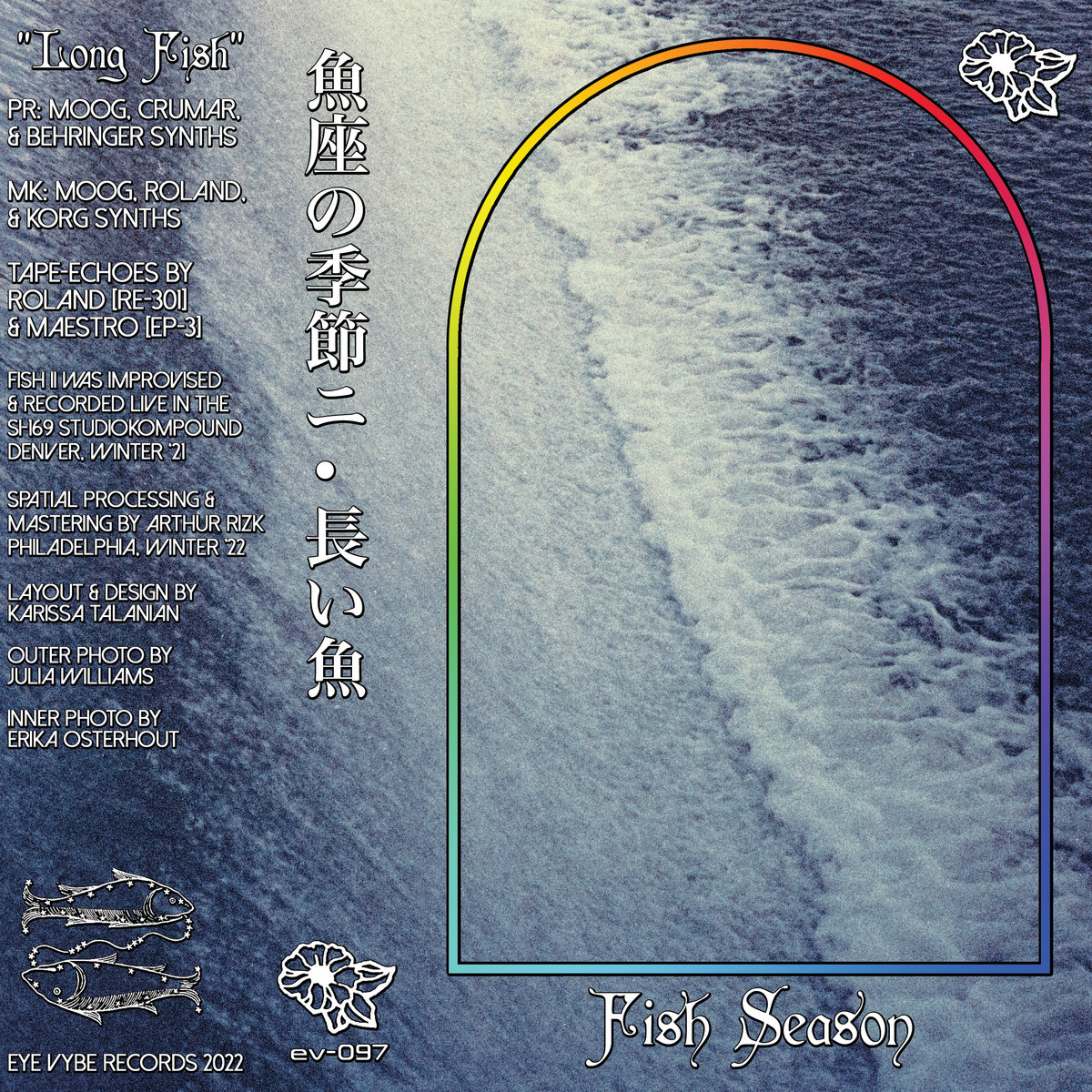 Fish Season
Fish Season
Fish II
(Eye Vybe Records)
It’s hard to deny the elemental energy infused into Fish II, the latest recording from Paul Riedl and Morris Kolontyrsky, which they’ve shared under their Fish Season moniker. Known for their cryptic ambient work, the pair have once again crafted a towering instrumental force that expands until it reached the black inkiness of deep-sea waters. It could act as a soundtrack to both a dive into the Challenger Deep or for some orbit around one of Saturn’s larger moons. It possesses enormous depths and easily engulfs the senses of anyone within earshot. Built brick by brick from analog synthesizers and tape delays, the sole longform piece entitled “Long Fish” is a daunting and hypnotic whir of droning rhythms and spacious minimalism, one that confounds with its emotional malleability as well as its textural contours.
There are expectations of grand revelation laced throughout the music, allowing us to project our own assumptions into the elongated sounds. Do we see some distant celestial vista or the dark expanse of the ocean while in its grasp – when faced with common enormity, are we able to process these experiences differently? Riedl and Kolontyrsky aren’t looking to resolve these questions; they’re simply providing the space for us to wrestle with them ourselves. There are moments when the calm seems to stretch on forever before the music brings you back to ground with a series of amorphous drones and slowly unfurled melodies. There’s no rush, no great desire to sate a need for immediate gratification. Fish Season II is a place where ideas and emotions and memories can be examined and broken down before their full relevance can be fully revealed.
 Wild Ones
Wild Ones
Now You Know (Selected Songs 2010-2018)
(Antiquated Future)
It’s been four years since Portland, Oregon dream-pop band Wild Ones decided to call it quits, leaving behind a couple of LPs, and as many EPs, over their near-decade run. Their work was a statement in musical adaptation, drawing from indie rock, pop, R&B, dance, and a handful of other aesthetics in a bid to create a sound as unique as it was addictive. Portland’s own Antiquated Future has gathered together a compendium of unreleased songs, live versions, outtakes, and various other musical sundries from across the band’s history, releasing Now You Know (Selected Songs 2010-2018) in an effort to shed light on a band deserving of more attention for their eclectic influences and clever musical concoctions.
Whether it’s an outtake from 2017’s Mirror Touch or live cuts from SXSW, Daytrotter, and Audiotree, this collection provides a better understanding of how the band worked through their collective musical affections and developed a distinctive amalgam of rhythmic lineages. It wasn’t quite a kitchen sink approach – they were too focused on the end result to let it be that ramshackle. These tracks act as an audio chronicle for the band as their sound shifted, refined, and reshaped itself through years of live shows and studio sessions. Occasionally drenched in fuzzy theatrics or molded into some indie-pop vessel or primed for some late-night dancefloor gyrations, their songs were often euphoric distillations of countless genre experiments, madcap creations that spoke to the body, the head, and the heart in the same exact moment in time.
 Taranoya
Taranoya
Flying
(Sound as Language)
Originally hailing from Iran, ambient artist and producer Taraneh Schmidt (who records as Taranoya) now finds herself living in Portland, crafting the soundtrack to your dreams. Blending the spacious motions of dream-pop with the wandering nature of electronic minimalism, she channels feelings of nostalgia, loss, and playfulness through airy atmospheres littered with uncluttered revelation. As you drift through her latest album, Flying, the sensation of freeform movement is almost overwhelming, such is the vaporous beauty of her work. These songs act as vague canvases for us to reflect on what’s forefront in our minds. With each winding staircase of wispy tones and translucent angles, you begin to unravel the mysteries inherent to these sounds, to expose the emotional core of what Taranoya is expressing.
Featuring guest work from London sound artist Rocheman and Los Angeles ambient composer Ki Oni, Flying is a testament to the flexibility of ambient music, to the way it shapes itself to each listener’s experience and headspace. Where one person might hear mourning, another might hear the sounds of renewal. Tarnoya leans into idea of individual impression, allowing the music to conform without restriction to each of us. There is freedom in its hazy landscapes and indistinct borders, a release from conventional rituals of introspection and the search for self. With each track, we’re confronted by multiple emotional variations, all of which allow us to relate to the music in different ways. And this interaction is what makes this noise so effective at setting up vivid internal associations in its audience.
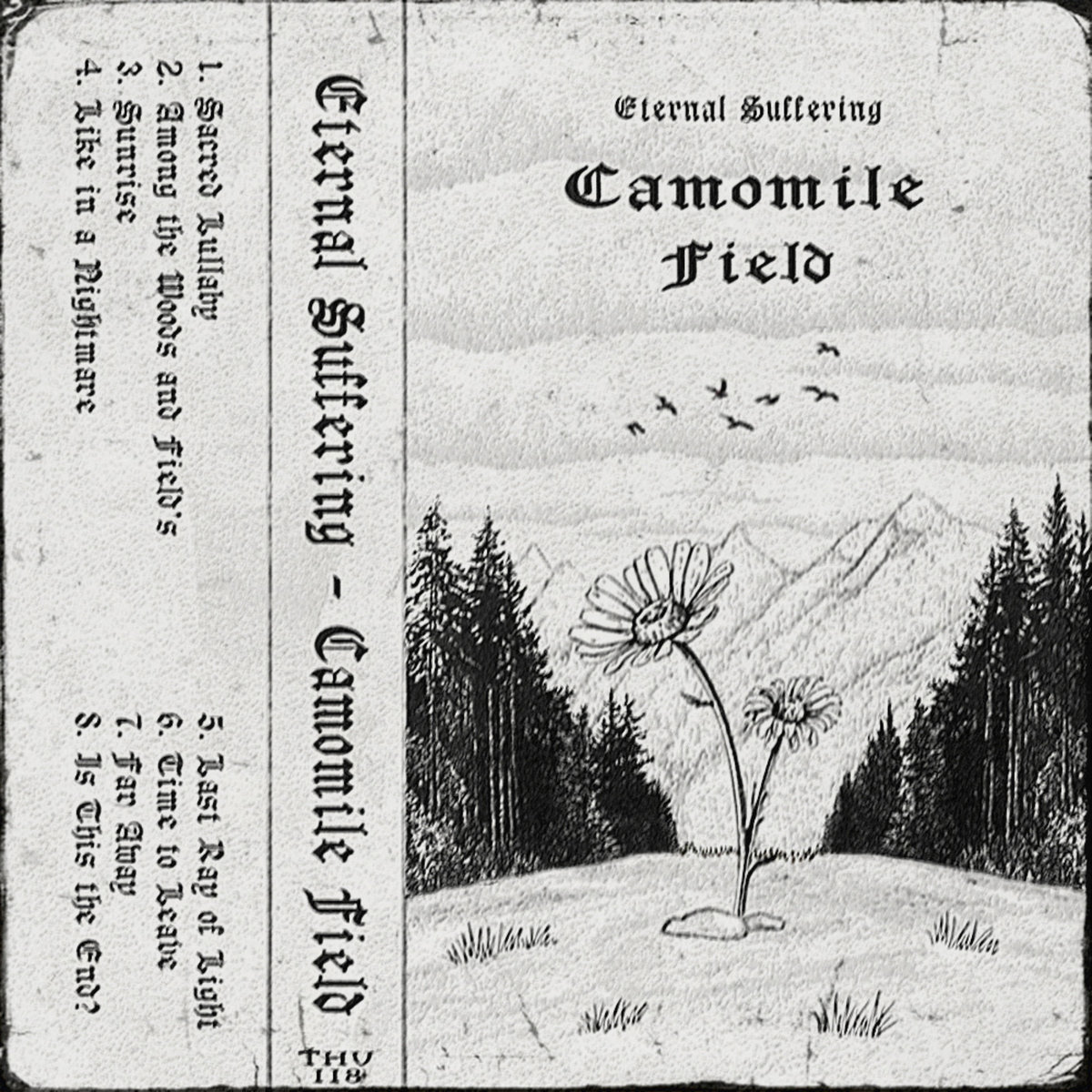 Eternal Suffering
Eternal Suffering
Camomile Field
(Tape House USA)
The latest album from Eternal Suffering is a release of sorts, a way for him to reminisce on certain moments in his life which brought him joy. “This album is dedicated to my best and happiest times,” he explains. “It’s [my] goal is to bring you as close as possible to the emotions that I feel now, looking back, and those that I managed to experience then.” Bottled inside the niche dungeon rap aesthetic, the songs on Camomile Field are bathed in dark synths and echoey lyrical asides – it’s a shadowy entrance into the genre but one that perfectly balances its hip-hop fluidity with its electronic experimentation. Aided by fellow dungeon enthusiasts Eternal Flame, Lord Nocturno, Lord Rashnak, and Obscure Castle, the record exists within the shadows of their collective influences and catalogs some ecstatic memories within its murky depths.
The beats are fairly minimal, letting the synths and the gloomy voices fill most of the space within each track. But despite this relative austerity, the album feels lush and lived-in, formed through experience and decades of decisions. Some artists find catharsis through pain; others, like Eternal Suffering, are able to find it through the remembrance of better times, of happiness and a feeling of camaraderie felt between like-minded friends. Camomile Field allows these artists to explore their friendship without needing to exactly define what it means to them, the highs and the lows shared and survived. If ever darkness cold be said to possess the glimmer of hopefulness, then this album can stand as concrete proof that those two conflicting atmospheres can exist without sacrificing their innate emotional intensities.
 Chia-Chun Xu
Chia-Chun Xu
Delusional Persona
(Karma Detonation Tapes)
Taiwanese harsh noise producer and Karma Detonation Tapes founder Chia-Chun Xu creates a confounding roar through the manipulation of feedback by mixing the output of various pieces of equipment, utilizing a no-input mixing board, cassettes, and MiniDisc players. The resulting dissonance is shaped to his needs and explodes with all the force of a staticky grenade. For his latest release, Delusional Persona, he’s taken a single one-take recording and chopped it up into 4 tracks (basically enough to completely fill both sides of a tape). Created on Denon DX90 Type I tape run through a TEAC V-1050, the resulting discordant eruption is volatile, serrated, and seems intent on picking apart the layers of your brain. Like the best noise performances, you have to look past the superficial ugliness to discover the inherent beauty of what is happening, and Delusional Persona is no exception.
These four tracks use droning arrythmia to convey confusion, fear, and a desperate search for identity, all bound up through Xu’s desire to evoke an unsettling mental headspace. You do eventually fall under its sway, picking apart each glitchy devastation and searing circuital breakdown to discover the beating heart beneath its synthetic exterior. It’s not an easy recording to examine or categorize. It doesn’t welcome you, nor does it set up any relatable narrative. This is pure wired impulse distilled down to its basic form. And within that form is a world of moving consciousnesses and stories to witness and study. If you put in the time and effort necessary to fully understand the complicated sensations Xu is offering on Delusional Persona, then you begin to understand the depth and range of emotion that unfiltered noise can convey.
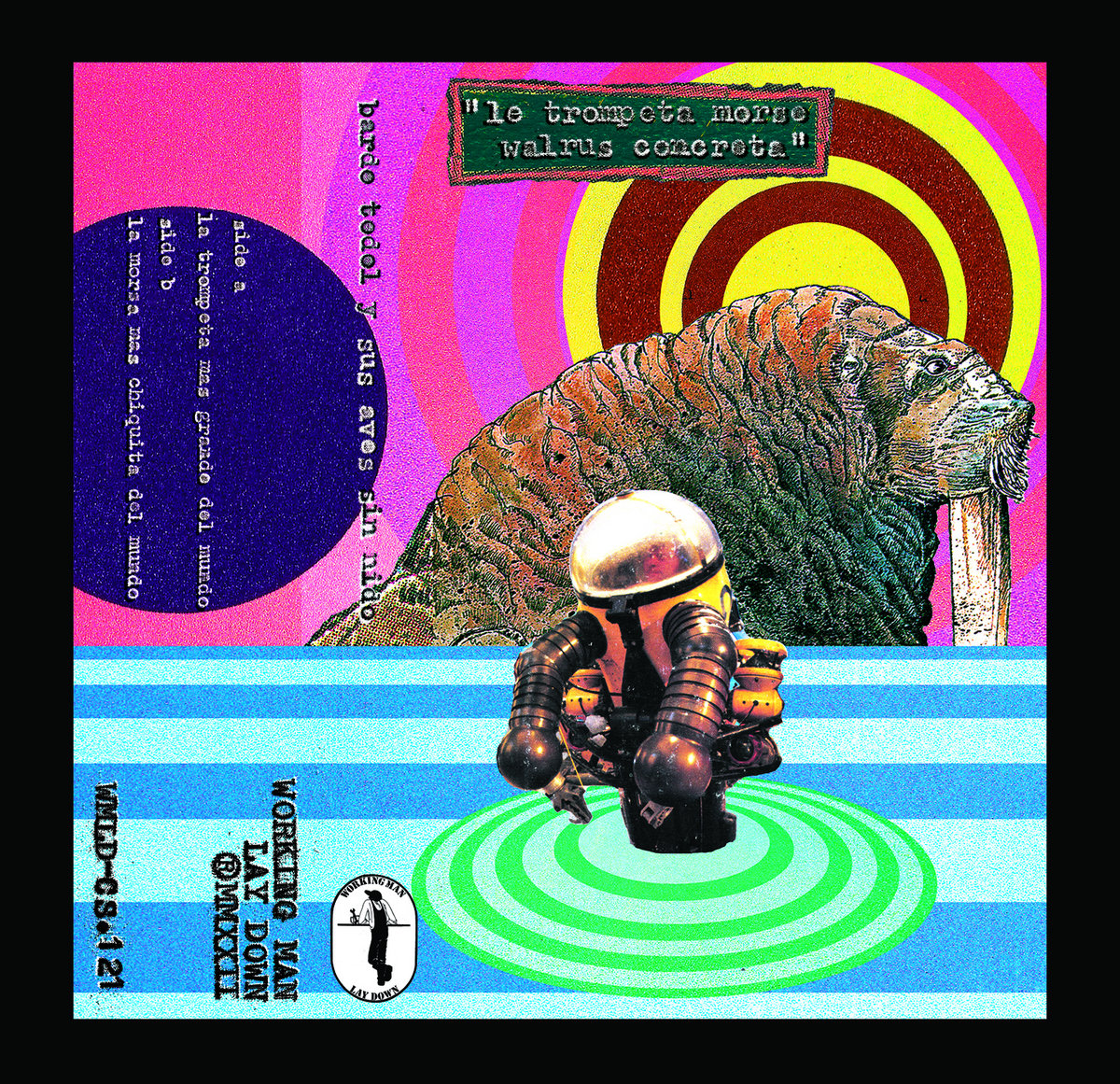 Bardo Todol y sus aves sin Nido
Bardo Todol y sus aves sin Nido
le trompeta more walrus concreta
(Workingman Laydown)
Pablo Picco used only a pocket trumpet, a 4-track recorder, and a series of overdubs to create the latest release under his Bardo Todol y sus aves sin Nido moniker. The Argentinian noisemaker has long made a habit of crafting warbling electronic chaos out of memories and moments of reflection, and le trompeta more walrus concreta further establishes him as one of the scene’s preeminent alchemists. Blending found sound artifacts and burbles of warped trumpet, Picco creates a brittle soundscape where instinct and preparation are smashed together until there’s little to distinguish what was planned and what was left to chance. It’s all held together in two chapters, brief associated segments that unravel in order, leading from one bit of frenzied inspiration to the next – finally arriving at some uncharacterizable ending, one that provides no answers or even hints at what the questions might have been.
As with all his work, there is nothing but personal interpretation, wild guesses, and impressionistic epiphanies that lead us right back to where we started. That’s the wonder of his music. As each song slowly unravels, we find ourselves on a trip through our psyche aided and abetted by the sounds collected from Picco’s reservoir of inspiration. Direction is meaningless; there’s only unfiltered impulse acted upon through hardwired emotional stimuli. And the way in which we approach and interact with these sounds speaks to the way that we handle the daily struggles surrounding us. It feels as though there’s a correlation between musical analysis and our response to external provocation, and on le trompeta more walrus concreta, this association is laid out for all to hear and observe.
 Reverse Death
Reverse Death
Stretching to Infinity
(Drongo Tapes)
Seattle’s Reverse Death are torn between the minimal primitivism of John Fahey and the impressionistic post-rock of Dirty Three, and it’s all laid out in the expanse of ambient music’s gossamer atmospheres. Twilight echoes and silvery sundown textures are found in abundance, built from cello, piano, gentle feedback billows, and other ephemeral instrumentation. Their latest album, Stretching to Infinity, was initially conceived during a tour through Mexico, inspired by their experiences listening to Fahey, Jessica Pratt, and Tengger (among others), and was fittingly recorded after sundown. They began to whittle down their original recordings while visiting Snoqualmie National Forest. The resulting 6-track record evokes feelings of undiscovered expanses, the euphoria of personal freedom, and the call of distant horizons.
From the gorgeous and subtle minimalism of opener “Water Orbit” to the surprisingly muscular “Teapot”, the album maintains a sense of deep contemplation, of searching, even if you’re not exactly sure what you’re looking for. Closer “Temporary Ground” feels slightly off-center, like we’re tuning in from some mirrored reality, cello and shivering harmonies floating around one another in an endless cycle of ascent and decline. There’s something quite timeless about Stretching to Infinity, but it’s hard to properly contextual the experience of losing yourself to its sensations. The music moves past genres and becomes something else entirely, an amalgam of memories and aesthetics tied up and inseparable from each other. And when the music finally dims and eases back into the shadows, your only thought is how fortunate you have been to witness its existence.
Over the course of the COVID pandemic, musician Jean Néant (aka Joni Void) began to collect the cassette releases from Italian label Tsss Tapes, striking up a friendship with founder Francesco Covarino in the process. Eventually, Néant decided to make an album for the imprint, but it wasn’t going to be any ordinary collection. Taking samples from Tsss Tapes’ first 29 releases and working with a Roland SP-404, he began a journey of recombination and reworked the aesthetics of those artists, resulting in Bruitsss, a 13-track album of disquieting minimalism and abstract beauty. Often no more than an oddly textured series of sounds, but occasionally resolving into something more structured, these songs revel in the freedom afforded them by Néant’s approach.
And while I’m not familiar with every artist he adapts here, you do get a sense of the original works’ rhythmic variety and tonal differences. “Editsss Itssself” sounds like cups clacking together in the middle of some large foundry while “Chatsss & Catsss” uses warped croaking and bare bones beats to convey a disjointed narrative of random memories. Prior awareness of the source material isn’t necessary as the subsequent modulations are engaging and captivating, the consequence of a studious exploration of what made them so memorable in the first place. The change in complexity and timbre allows the music to vary wildly in both form and execution, giving Néant plenty of room to let each track wander around find its footing. A brilliant example of artistic recontextualization, Bruitsss possesses the soul of a mad scientist while exhibiting the ingenuity necessary to bring these aural experiments to life.

